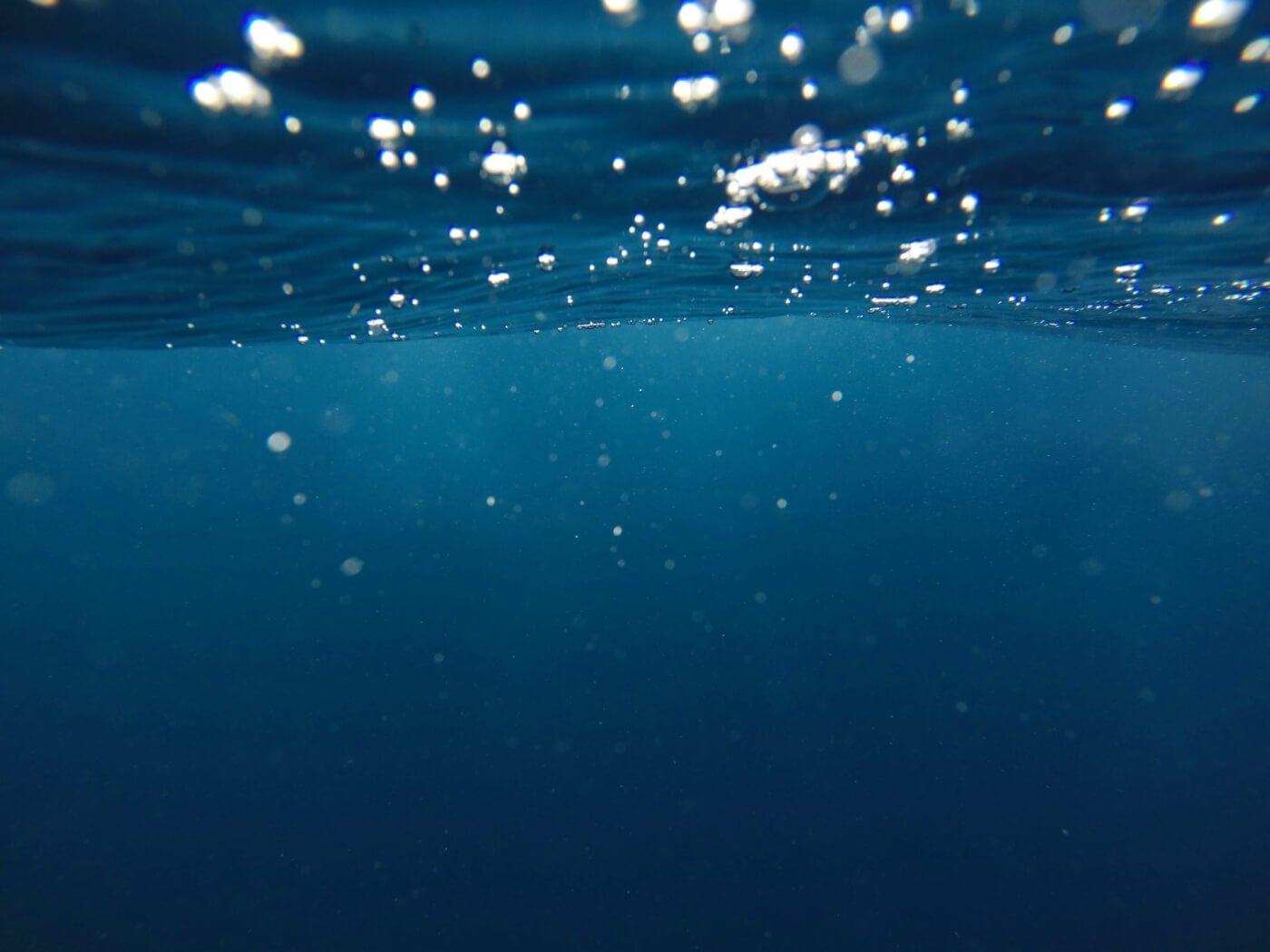Make a Splash With a ‘Trash Fishing’ Excursion!
This spring, PETA is encouraging people to go fishing—for trash, that is! “Trash fishing” is a fun, fish-friendly hobby that involves “fishing” litter out of the water, instead of impaling sensitive, living beings through their lips. It cleans up animals’ homes and protects fish, turtles, birds, and other animals from eating or becoming entangled in debris, which can be deadly.
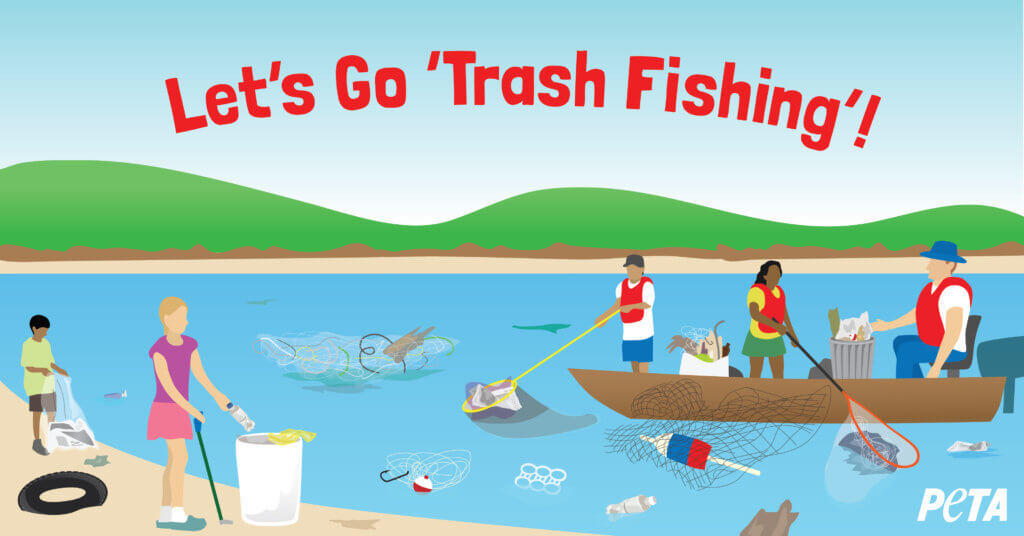
This award-winning initiative, started by a father-and-son duo who tackle trash in Michigan’s Detroit River, is now inspiring people all over the country to take up the animal- and Earth-friendly activity.
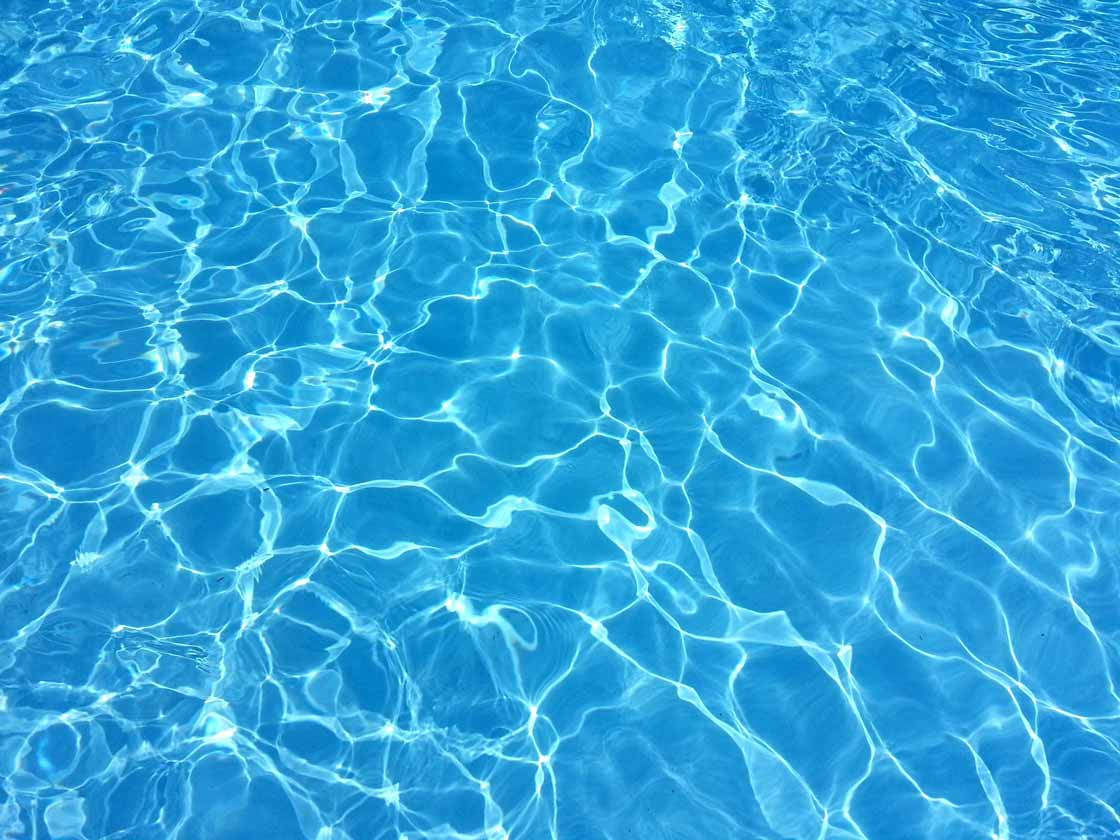
This ‘Trashy’ Pastime Is Good, Clean Fun
Want to join in? It’s simple! Just gather some friends and the necessary tools and head to a local beach, lake, pond, stream, or river to start “fishing.”
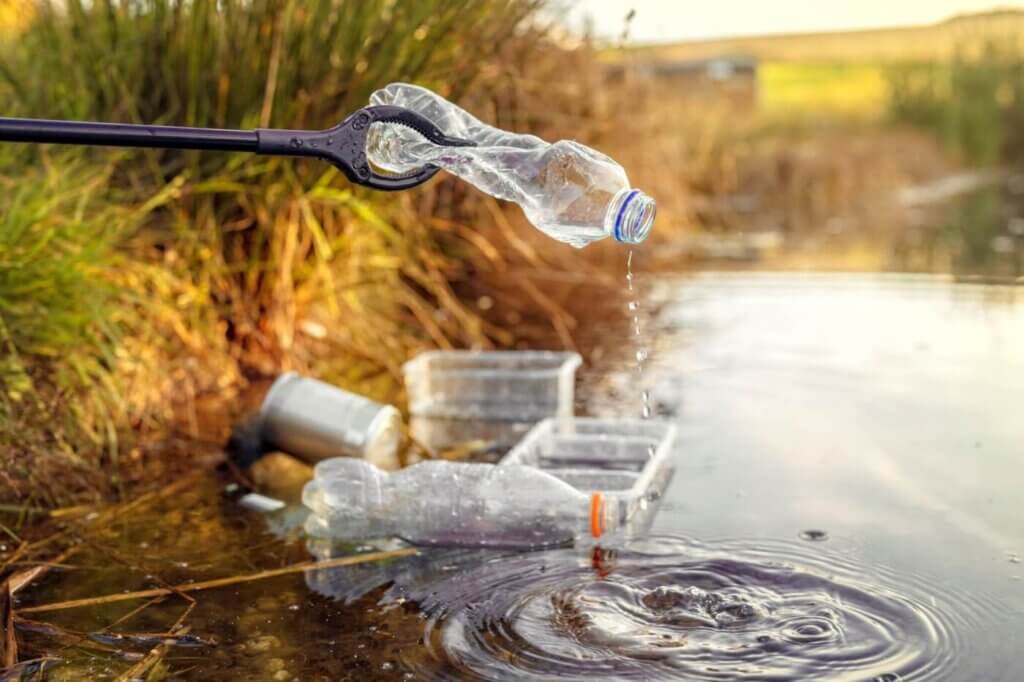 © iStock.com/BrianAJackson
© iStock.com/BrianAJackson
You don’t need a boat—but if you have one, it obviously can help you reach deeper areas and places that can’t be accessed from shore. A trash picker, net, shovel, or rake can help snag garbage and drag it out. It’s a good idea to wear some work gloves, too, since anything you pull out of the water will likely be dirty and may have sharp edges.
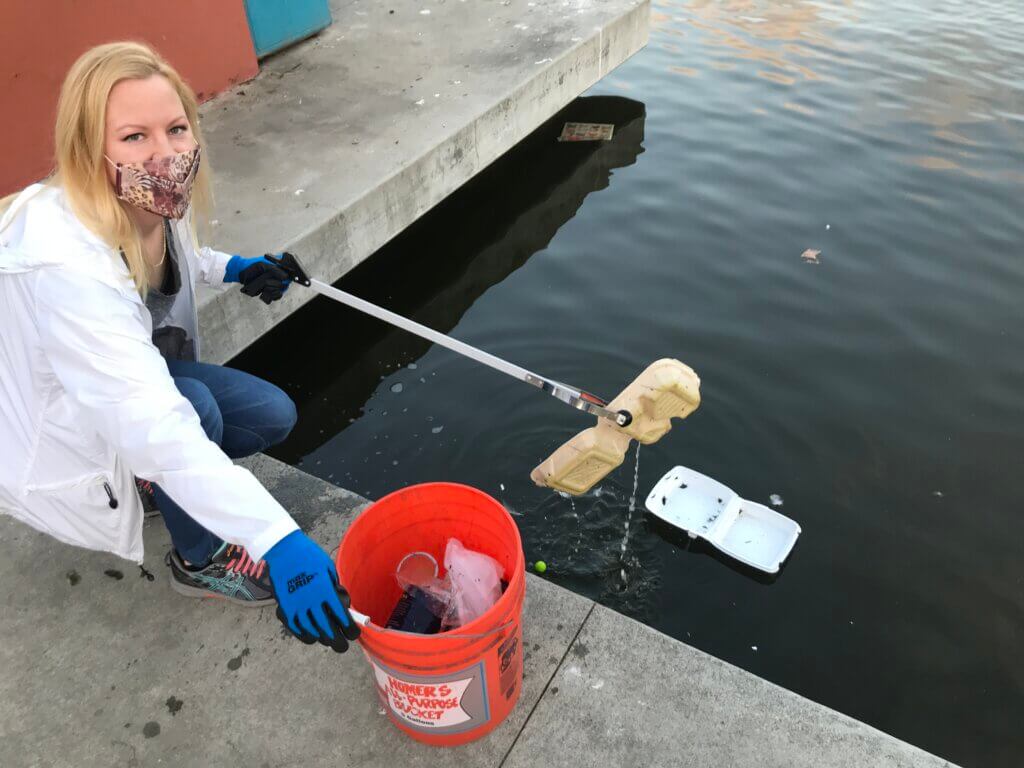
Even if you don’t live near any bodies of water, you can still “catch” trash on dry land—at a local park or nature preserve or even on city sidewalks! Wherever you gather trash, be sure to bring along a large container for all your “treasures” (plastic 55-gallon drums or biodegradable extra-large trash bags are good options) and ensure that your haul ends up in a recycle bin or trash can afterward.
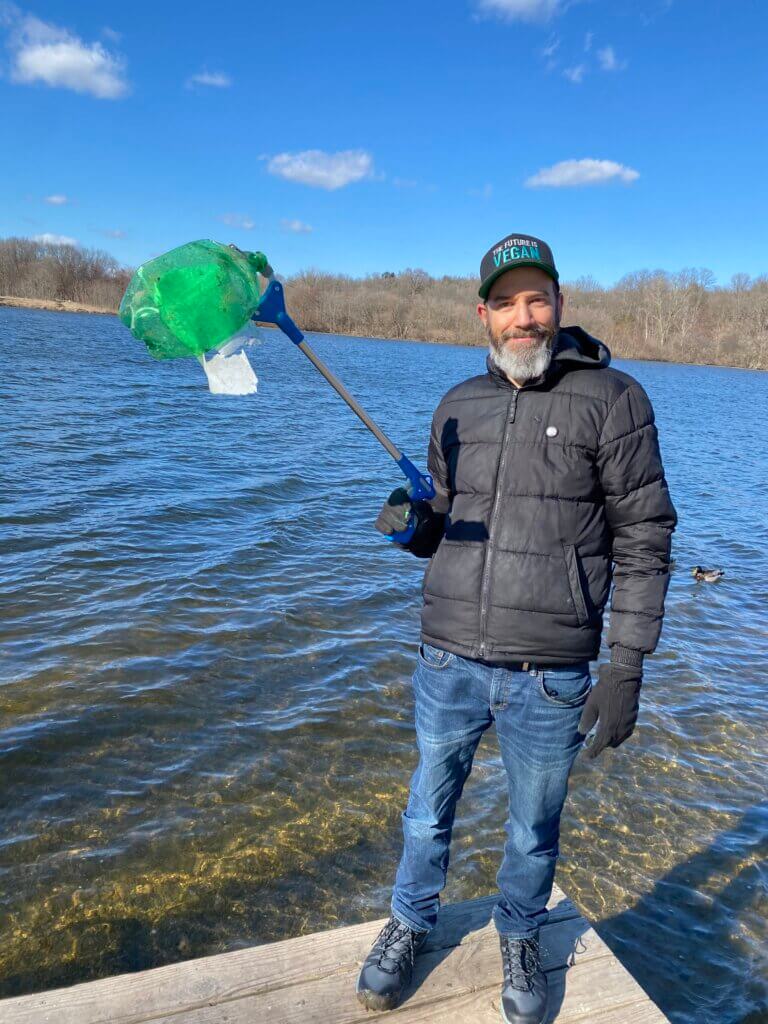
You never know what you might haul up—trash fishers have found water skis, construction barrels, electric scooters, and many other unusual items. It’s all part of the fun! Unlike fishing for animals, which involves a lot of sitting and waiting for an unfortunate fish to bite (cruel and boring), trash fishing is great for kids and will keep you busy and entertained the whole time. In one afternoon, you could easily catch 100 pieces of trash!
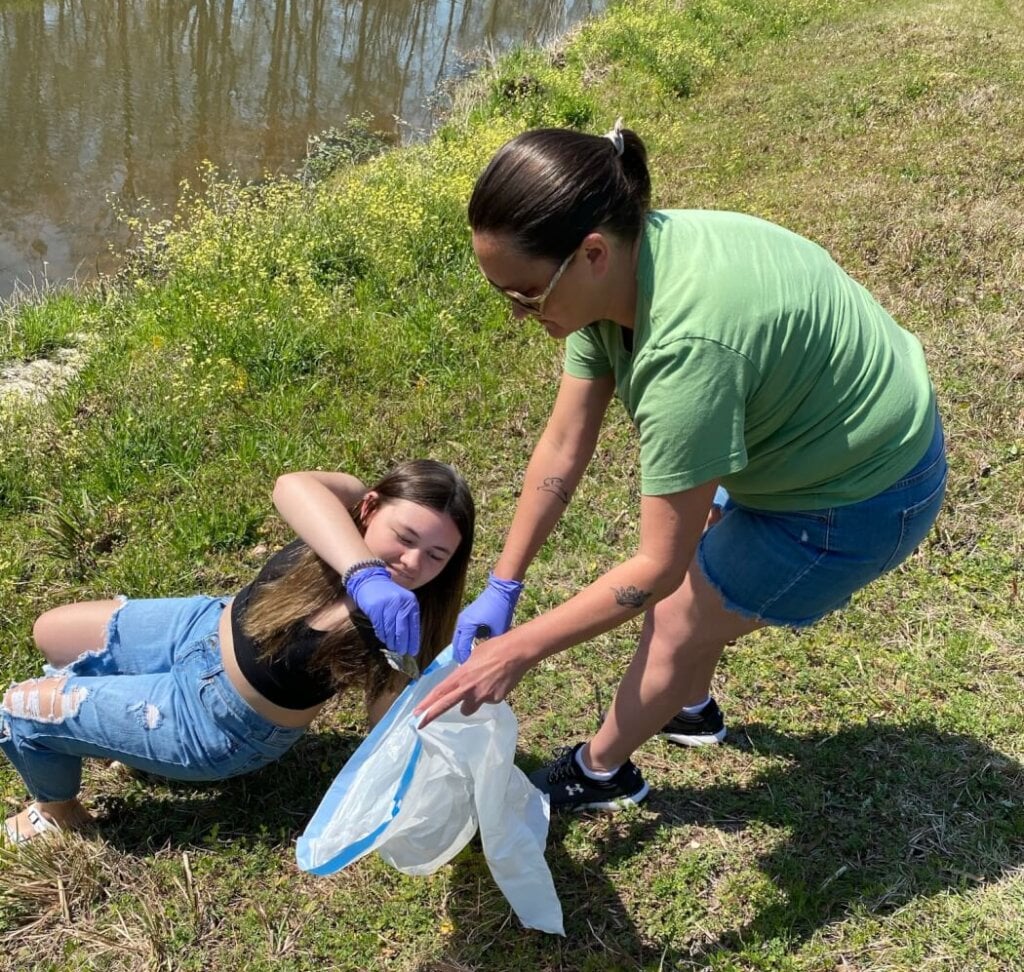
Why Catch Trash Instead of Trout?
Fish are unique individuals who communicate with one another and use tools. Hundreds of scientific papers show that these animals are intelligent and that they have impressive long-term memories and sophisticated social structures. Some tend well-kept gardens, encouraging the growth of tasty algae and weeding out the types that they don’t prefer. Like birds, many fish build nests in which they can raise their babies, while others collect little rocks off the seafloor to make hiding places where they can rest.
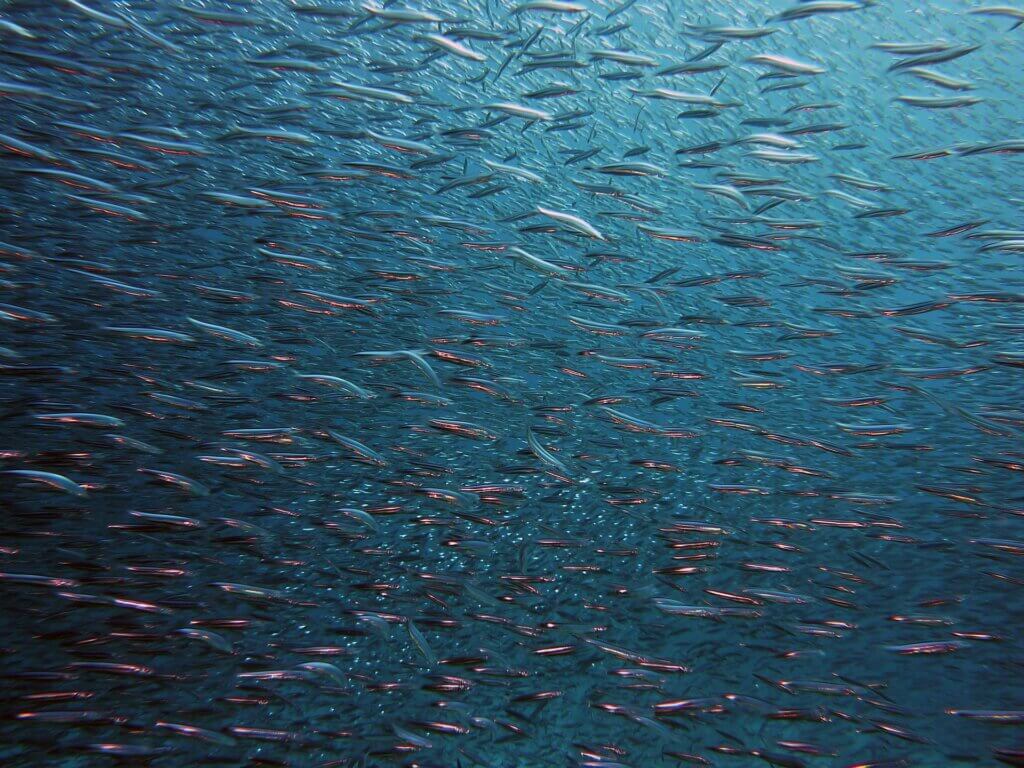
Fish have very sensitive mouths and endure excruciating pain when they’re impaled with sharp hooks and yanked out of their aquatic homes into an environment in which they can’t breathe. Many fish who are caught and released later die from injuries or stress. They deserve to be left in peace, not tormented and killed for human amusement.
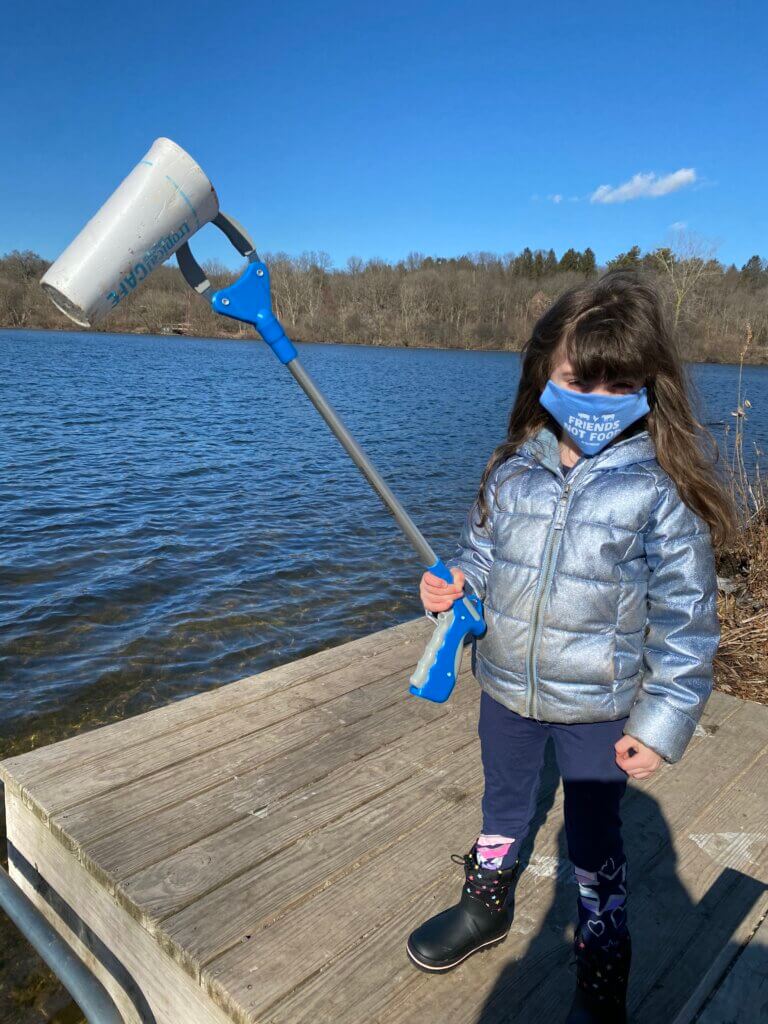
And fishing doesn’t just hurt fish: Every year, millions of birds, turtles, and other animals sustain debilitating injuries after swallowing hooks or becoming entangled in fishing line and other trash.
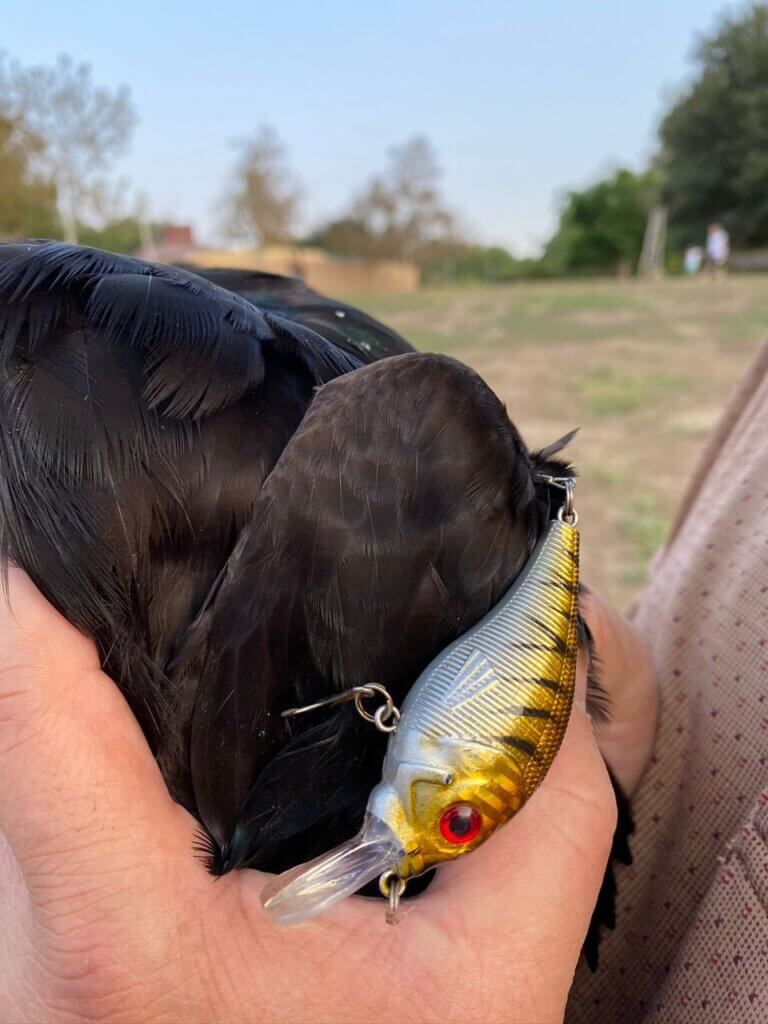
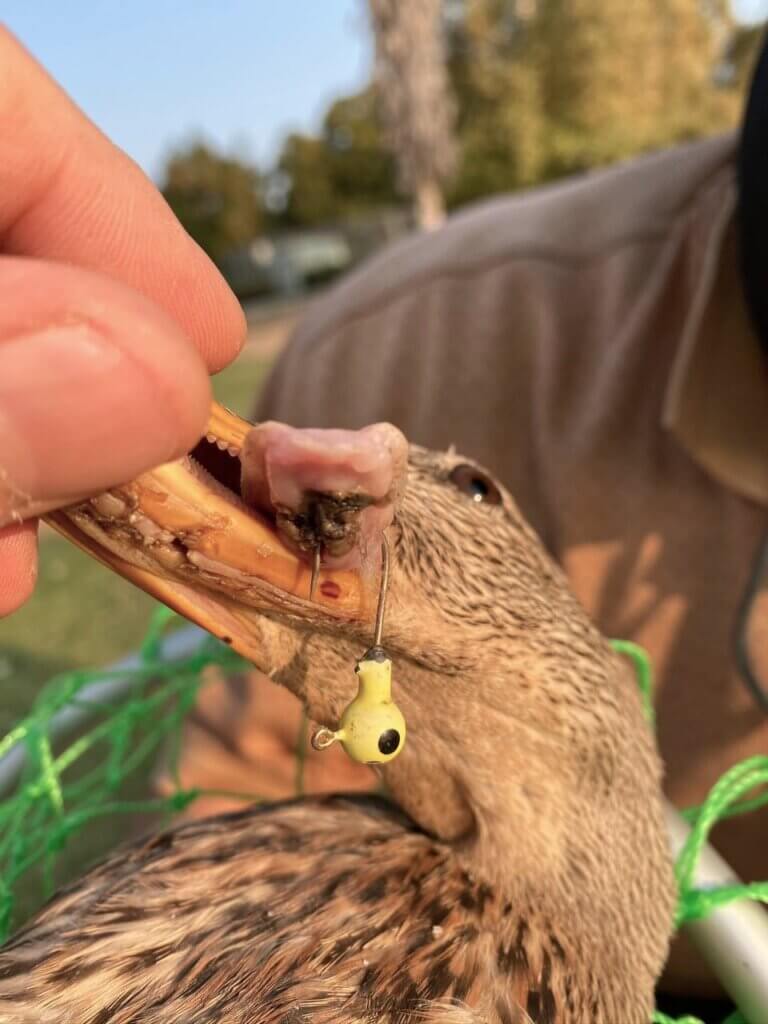
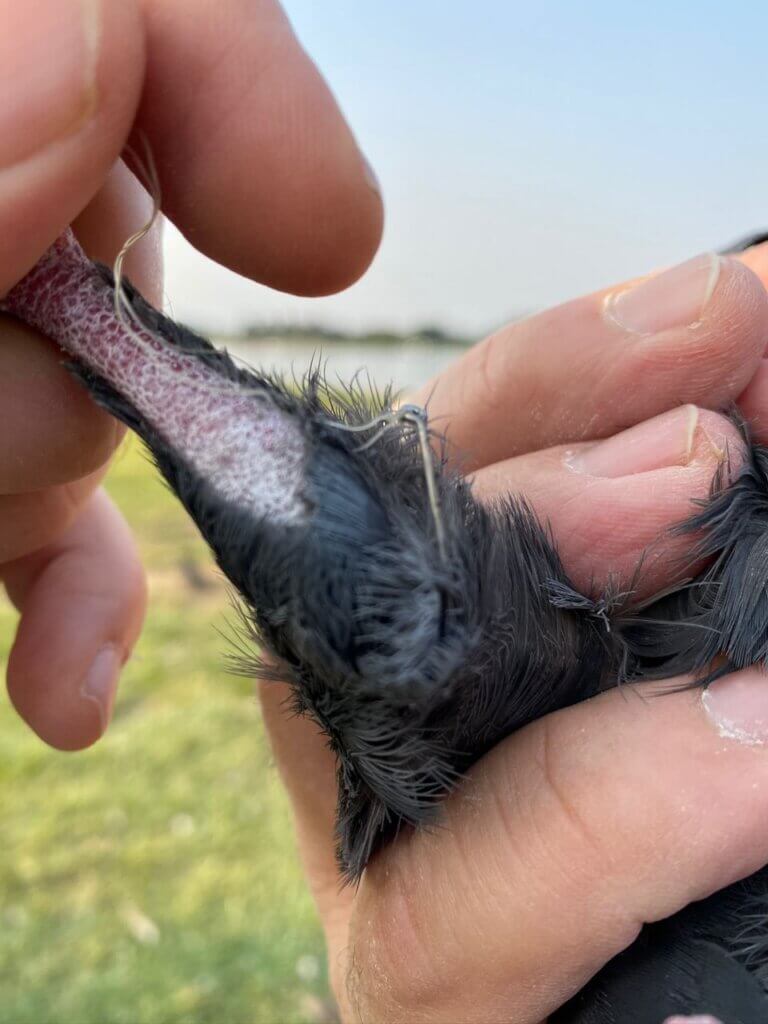
Wildlife rehabilitators say that discarded fishing gear is one of the greatest threats to aquatic animals . You’ll be sure to find lots of it when you start trash fishing!
So, what are you waiting for? Invite your friends, family, and social media followers to mask up, stay socially distanced, and meet you at the water or anywhere else that needs a clean-up for an afternoon of trash fishing. You can even host your own trash-fishing tournament, with prizes for the heaviest haul, the most items caught, or the most unique find. Share your best pictures with PETA online, and be sure to mark your posts with the hashtag #TrashFishing to spark a conversation.
It’s Easy to Take Action for Fish Every Day!
Trash fishing is just one simple way to help fish and other aquatic animals. You can also share a vegan seafood dinner with a friend who eats meat. Show them how easy it is to enjoy their favorite flavors without harming animals.
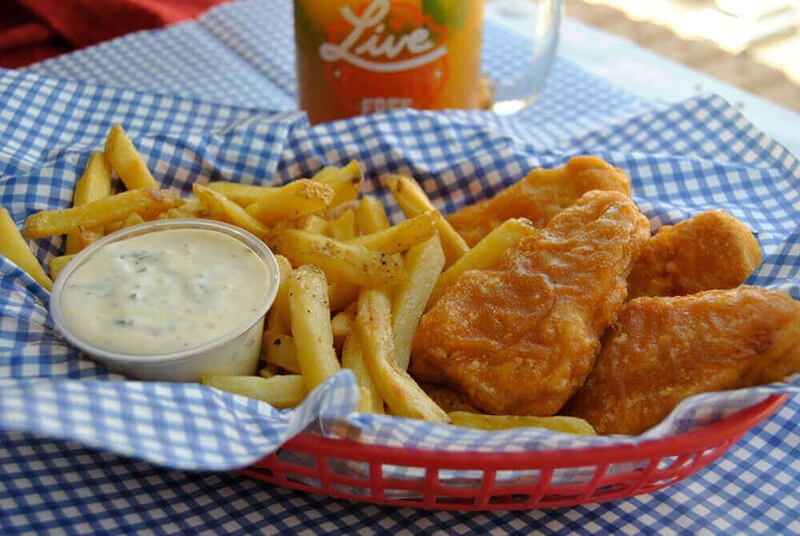
And be sure never to prop up the cruel pet trade. Don’t buy food, toys, or any other supplies from stores that sell live fish as if they were disposable merchandise. Instead, support these online retailers that don’t sell animals.
